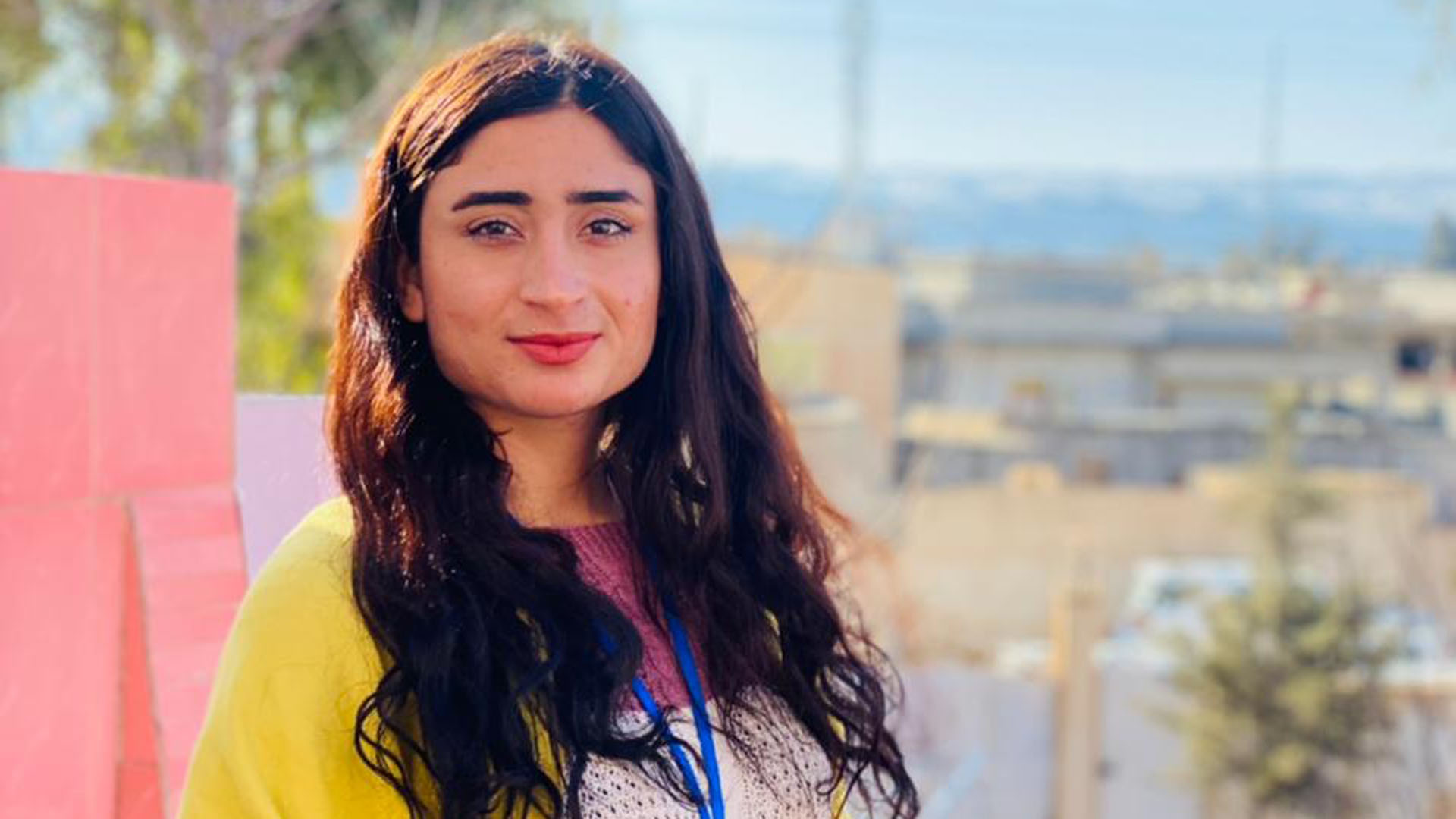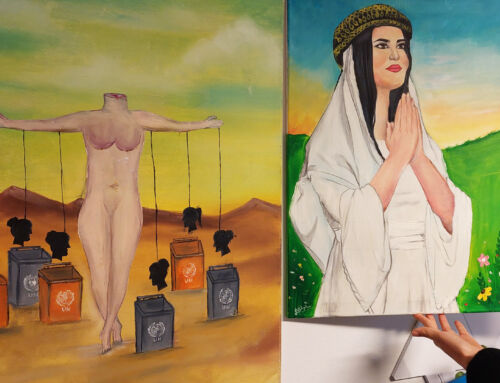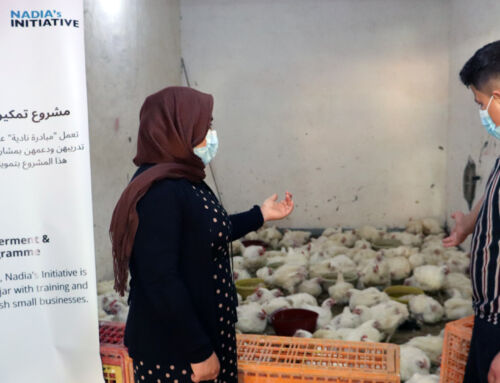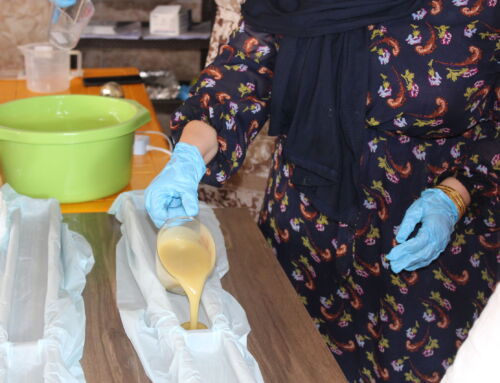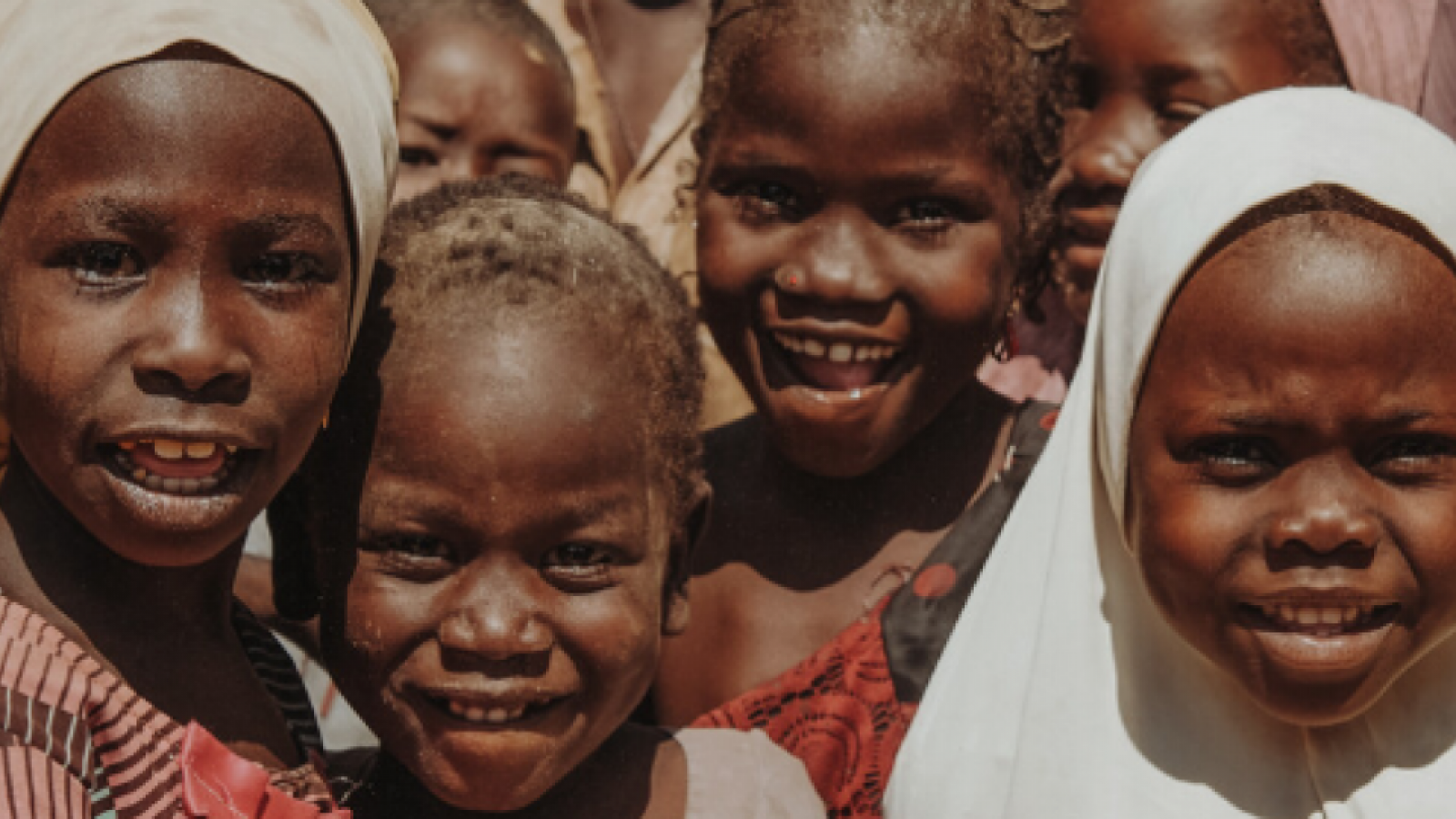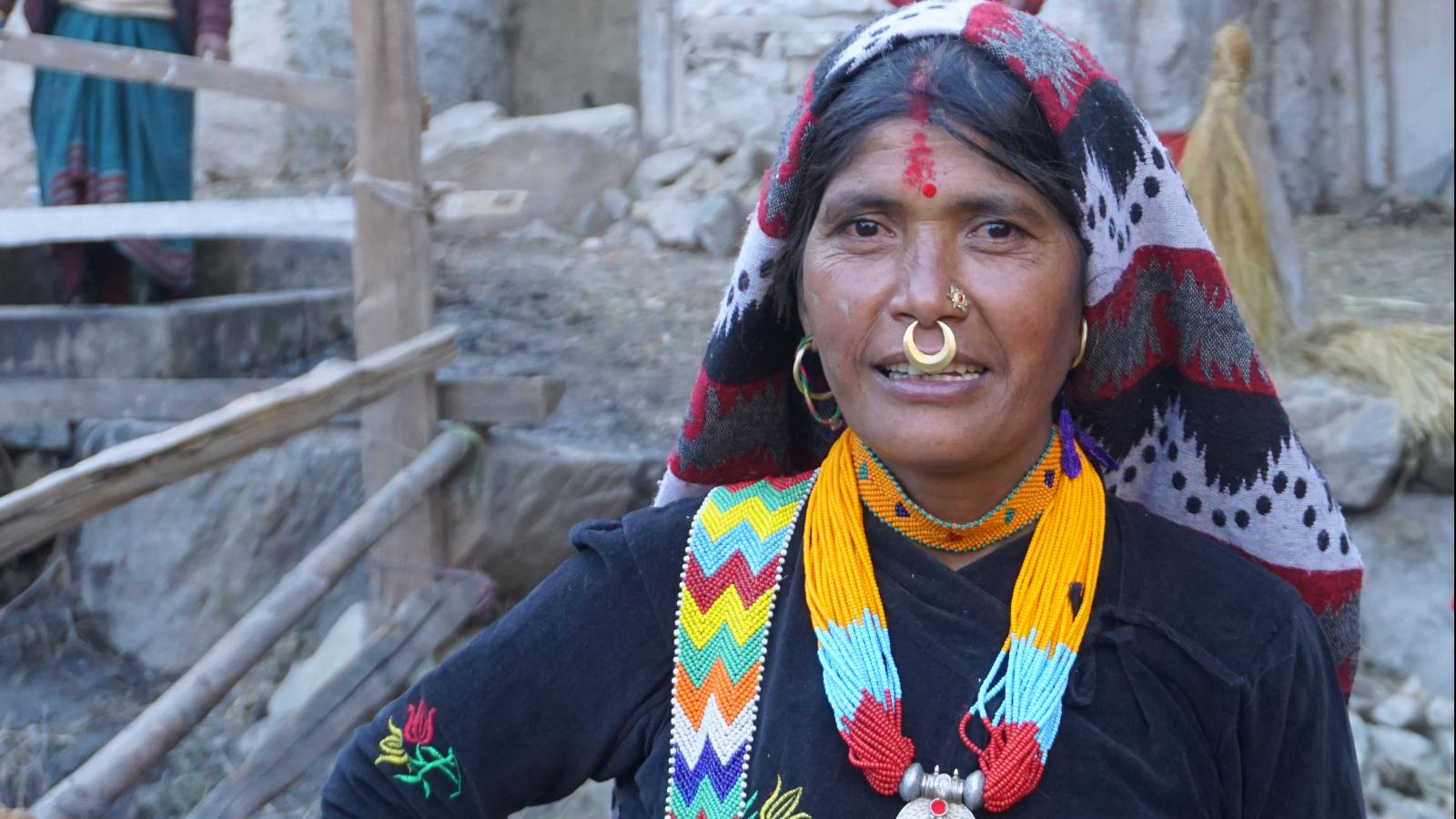It is absolutely necessary to build women’s confidence after they have been failed so badly. Here, Ghalya Qasu (picture) talks about how she, as a psychologist, tries to help Yazidi women who have survived sexual violence from IS fighters.
It is impossible to imagine the shock, trauma and horrific flashbacks that girls and women struggle with after being raped, beaten and humiliated by IS fighters for several years. But this is the reality for thousands of girls and women of the persecuted Yazidi minority in northern Iraq.
The survivors may return to their main town of Sinjar and the surrounding villages, but they are not the same as before. And if they don’t get psychological help, they remain prisoners in their own minds because of the violence they have experienced.
Need for confidential conversations with a psychologist
And this is where Mission East’s community center comes into the picture. Here, girls and women are offered so-called psychosocial support, where through activities such as sewing, painting, cooking and yoga, they slowly dare to open up and talk to someone about the memories that trouble them. And in this case, many of the women need to be able to speak confidentially with a professional psychologist.
We talk to Ghalya Qasu, one of the two psychologists at the center, who explains how she approaches her clients step by step:
“It is important to build women’s trust in other people and systems. After all, they have been failed in the worst possible way. So we seek to build their trust in us by telling them in great detail about ourselves and what we do, what we are able to achieve, and specifically how a psychology session is conducted. And that what the woman says to the psychologist remains completely confidential.”
Financial problems weigh heavily
What can a psychologist offer these women?
“First of all, we try to create an overview of their case. We ask about their family relationships, their educational background, their financial background. We also check their state of health, whether they suffer from a chronic illness, for example. All to assess what kind of treatment they need.”
Where do finances come into the picture?
“We ask about their financial situation because we know that financial problems affect their state of mind. It is important to know if they can provide for their families.”
Once the woman’s situation has been clarified, the psychologist makes a diagnosis and assesses whether they need psychotherapy or medical treatment. If this is the case, the psychologist refers them to other organizations in Sinjar that specialize in just this. Mission East does not provide medical care.
“We take care of women who need individual sessions with a psychologist. We assess how many sessions are needed and how often they need to see them. It depends on how deep their problems are.”
Uses Socratic questioning techniques
How do you get the client to open up?
“For children who have survived captivity under IS, the best method is to get them to draw and paint what they have experienced. This helps them to indirectly express what they have experienced. The drawings help us to identify what they are feeling at that moment. And then they can perhaps begin to put into words what they want to tell us with the drawing.”
With adults, Ghalya Qasu uses the Socratic dialogue method, where a special questioning technique helps the person to come out with their inner thoughts and feelings.
“We have to be aware that it is very difficult for these women to speak openly about what they have been exposed to. Many of them have flashbacks to horrific scenes, some experience increasing depression, and most are very tense. You cannot ask questions directly. But the Socrates model helps each individual survivor to speak and to tell in their own words what they feel and what they have experienced.”
What happens inside the survivor when they start to tell?
“They definitelystart to feel better when they can unburden themselves and in a safe and confidential space start to talk about the violent experiences they have been through. The intensity will decrease little by little. Because feelings are strengthened by being kept inside, they magnify when you don’t express them. But through conversations with the psychologist, the pressure can be relieved. They no longer feel the need to hold back. Now they can express a little more of what they feel. It all disentangles when they are able to say what is weighing them down.
A help that the women are not alone
There must also be great shame in returning to a society that knows what they have been exposed to in terms of sexual abuse…
“In Sinjar, there are many women, yes, thousands, who have experienced sexual violence under IS. Society is not open to talking about what the women have been exposed to, but the women understand that there are places like our center where it is OK to talk openly about it. After all, they know that many other women have been exposed to the same. They are not alone. When several thousand women have gone through the same gross violence, it makes the stigma a little less.
And then it is important for me to tell the client that what has happened is not her fault. It happened and it was out of her hands. They don’t need to feel shame because it wasn’t their fault. What happened was completely out of their control. It is also important that the client understands that we do not judge them. That, as a psychologist, I just try to understand. I also make sure I say very clearly: I believe in you!”
To carry on living and start a family
Is there hope? Do these people have the resources to get back to a normal life again?
“We try to help the survivors to accept what has happened. They have to understand and accept that what happened is in the past. It happened, but it’s not happening now. It belongs to the past. Now they live in a different situation, and we help them adapt to it. They have to learn to live in the present. Because this is the here and now.”
But how exactly do they go about it?
“One method for moving on with one’s life is to create changes in life. Change your workplace. Move to another location. Travel. Just a small change in living conditions can be a big help when you’ve been through traumatic experiences. We encourage our clients to try something new, do what they would like to do.”
Will a woman who has been subjected to systematic sexual violence and perhaps sold on to other men ever be able to live a normal family life again?
“Without psychological counseling and psychosocial support, these women will find it very difficult to get married and start a family. They are in very bad shape psychologically. But we can see that the psychological help works. Many of the women actually get married and enter normal family life again. But without psychosocial support, the survivors would not be able to contemplate marriage or family life at all.”

